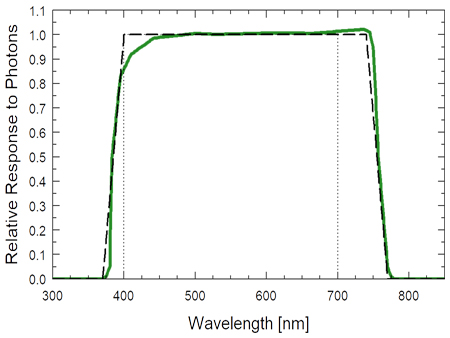- Joined
- Sep 18, 2017
- Messages
- 5,611
- Reaction score
- 3,452
Retiring the ePFD Sensor Series
With the recent release and success of our new ePAR (SQ-610-SS Series, 380-760 nm) sensor line, Apogee has decided to retire the ePFD (SQ-620-SS Series, 340-1040 nm) sensor line as of May 19, 2021.
The ePFD sensors have been excellent sensors, but the new refinements to the optical filters in the ePAR line means they can be used to measure all light sources, not just LEDs, making the ePAR sensors more versatile.
This decision to discontinue the ePFD sensor line was also supported by new research from Dr. Bruce Bugbee's lab at Utah State University that has shown that no photosynthesis is caused by wavelengths above about 750 nm.
The older ePFD sensor's extremely high upper cutoff sensitivity level of 1040 nm meant that radiation sources with peaks above 750 nm, such as metal halide lamps, could not be reliably measured for their extended photosynthetically active radiation levels with the ePFD sensors.
Discontinued Product Manuals and Retired Products | Apogee Instruments

Last edited:













